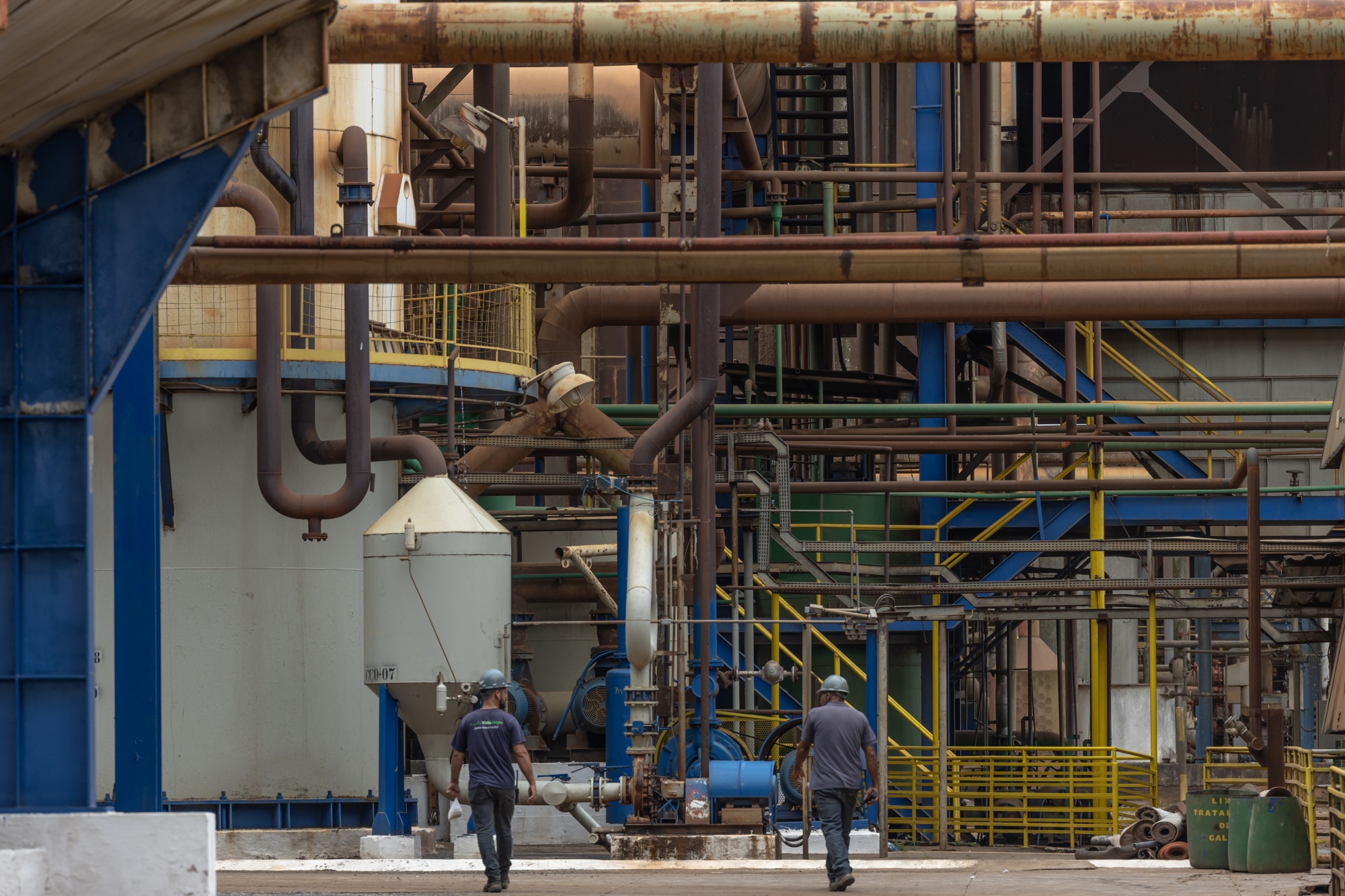Brazil Lines Up Pledge on Quadrupling Clean Fuel at COP30
(Bloomberg) -- Brazil is working with Japan and Italy to win support for a global pledge to quadruple sustainable fuel production by 2035, an effort to boost the technology to help decarbonize transport and energy systems.
The country unveiled the initiative Tuesday ahead of the COP30 climate summit in Belém next month.
“The idea is that from now until the Belém summit, this initiative can gain more traction,” João Marcos Paes Leme, director of the Energy Department at Brazil’s Ministry of Foreign Affairs, said during a press conference in Brasília.
A draft declaration seen by Bloomberg, called the Belém 4X Pledge on Sustainable Fuels, commits to expand the fuels’ use worldwide by at least a factor of four compared to 2024 base levels, “taking into consideration different starting points and national circumstances.” Signatories would pledge to take “comprehensive” domestic actions to meet the target.

Francesco Corvaro, special climate envoy for the Italian government, said the proposal was co-launched by Brazil, Japan, Italy and India and that several other countries are thought to be interested in joining, but “we must wait for statements during the COP in Belém.”
Sustainable fuels usually include liquid biofuels, biogases and green hydrogen, along with solutions like e-fuels, which are made using captured carbon dioxide and renewable electricity.
“Many of these technologies are technically viable, but they are not yet produced at sufficient scale,” Leme said. “It is therefore important for economic players to see that there is indeed political backing from within the COP for these solutions to be scaled up.”
The pledge is designed to address a perceived hole in a landmark deal struck at COP28 to transition away from fossil fuels, which also included promises to triple renewable energy capacity globally and double the average annual rate of energy efficiency improvements by the end of this decade. Sustainable fuels are seen as a key tool to cut emissions in some of the hardest-to-decarbonize sectors, like aviation.
Accelerating deployment of the technologies could deliver investments of as much as $1.5 trillion between 2024 and 2035 and create 2 million jobs, the International Energy Agency said in an Oct. 13 report.
Brazil is a biofuels powerhouse. A program started in the wake of the 1973 oil crisis created a domestic ethanol industry, and most cars in the country can now run on gasoline, ethanol or a blend. Brazil is the second-largest ethanol exporter in the world.
Yet crop-based biofuels in particular are controversial, with environmental activists warning that they can aggravate food and land insecurity, harm biodiversity and actually increase emissions. By comparison, the market for e-fuels, which can in theory be carbon neutral, is nascent and expensive. Critics say that the power generated by wind and solar can be better used elsewhere.
A global declaration could help spur investments in the technologies, as well as create an international set of standards covering how much CO2 can be emitted during their production and from possible knock-on effects on the food supply and biodiversity.
The European Union is weighing whether to sign but has reservations about the role of biofuels, said another of the people. Italy has been pushing to exempt cars running on biofuels from the EU’s combustion engine ban that takes effect in 2035.
The EU didn’t immediately respond to a request for comment. India’s government didn’t respond to a request for comment made outside of usual office hours.
Brazil is pitching the pledge as a key pillar of its Action Agenda for COP30, as it tries to focus the climate talks on implementation of promises that have already been made. The country is also working on a Carbon Markets Coalition that aims to align standards of different national systems.
(Updates from third paragraph with comments from Brazilian and Italian officials and details of draft declaration.)
©2025 Bloomberg L.P.





